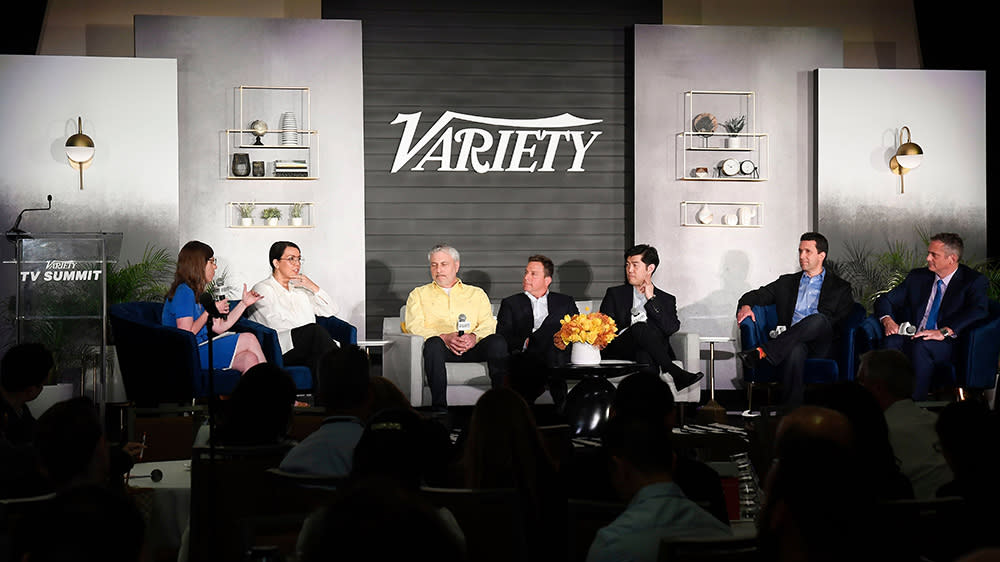Seven Takeaways from Variety’s 2019 TV Summit

Network presidents, CMOs, talent, showrunners, producers and more gathered at Variety’s annual TV Summit on Wednesday to discuss how to successfully navigate the rapidly changing industry. During the daylong event, which took place at 1 Hotel in West Hollywood, advertising execs shared personalized strategies for a competitive market, casting directors for shows such as “Catch-22” and “The Act” discussed their decision processes, and Disney’s Dana Walden and director-producer Ben Stiller sat down for special keynote conversations.
Here are seven takeaways from the event:
Related stories
Documentary Producers On Boom in Medium: 'People Are Starving for the Truth'
'Catch-22,' 'The Act' Casting Directors Talk Finding Christopher Abbott and Calum Worthy
On-screen representation begins behind the camera
Just this year, Judy Reyes has played both starring and supporting roles in “Claws,” “Jane the Virgin,” “Better Things,” and “One Day at a Time.” But despite her packed schedule, the Dominican actress says that she’s just thankful she is no longer being typecast as a stereotypical Latina character like she was before her breakout role in “Claws.”
“People have a really, really hard time seeing you in another way,” she said, but continued to say there’s been an impressive increase in representation both behind and in front of the camera in recent years.
“I’m excited for future but we have to take it upon ourselves to support, produce, and tell the stories that need to be told,” she said. “There’s no place for us if we aren’t the ones telling the stories.”
Personalized marketing is the key to network growth
Recent technology has enabled networks to take set-top box viewing data and build audience segments based on what consumers are viewing at any given minute, according to Matthew Weisbecker, the general manager of media & entertainment at the personalized digital marketing company Conversant.
By extracting data, anonymizing it, and then messaging viewers accordingly, marketing has the ability to be more effective than ever, he said, later adding that the increase in scale is the most exciting part of this technology. While advertisers were able to reach around 10-20% of audiences in the past, that number has now reached closer to 90%, according to Weisbecker.
“The scale is there now to be meaningful and drive outcomes,” he said.
Jennifer Bolt from the marketing agency Team One agreed, noting that audiences will inevitably go to other networks to receive other types of content and that such specific data can help media companies “produce that same content so they aren’t forced to go anywhere else.”
People love escapist programming
The success of feel-good Netflix shows such as “Queer Eye,” “Nailed It!” and “Tidying Up with Marie Kondo” has influenced the streamer’s programming strategy, said Brandon Riegg, the vice president of non-fiction series and comedy specials at the streamer.
“Telling real stories, real experiences, and real victories resonate with people everywhere,” he said, adding that people on a global scale have especially embraced those non-scripted shows. “We use the phrase ‘sparking joy’ in our own offices every day.”
Netflix is fostering a place for creators to cross-pollinate
With wildly successful comedy specials coming out of the streaming platform over the past couple of years — including Hannah Gadsby’s “Nannette” and Ali Wong’s “Hard Knock Wife” — less high-profile comedians have been able to use the global platform to reach millions of viewers. Riegg noted that it’s not only great for the performer, but also for subscribers who “love to see these people in other vehicles and stages.”
Not all data is good data
Abbey Thomas, the CMO at Tremor Video, says the “octopus model” — a term she coined — may be the best way to deal with cumbersome data in today’s advanced world. In response to the overwhelming amount of consumer data gathered from set-top and automatic content recognition (ACR) technology, Thomas’ model serves as an analogy for the various but finite segments, or tentacles, that are important for companies to focus on.
“Don’t feel like you have to do it all,” she said.
iHeartMedia is dedicated to not being a gatekeeper in the music industry
Recently reaching 160 million monthly users, iHeartMedia is the biggest media company in the country — and president of entertainment enterprises John Sykes wants to make clear that they aim to use their large digital footprint to help artists, not stand in their way. The 20,000 local events they can offer smaller bands more exposure to a variety of communities, he said. Sykes also noted that stars such as Khalid and Kacey Musgraves began their careers with iHeart by playing at the company’s local theaters before ever airing on the radio.
“If artists win, we win,” said the exec.
Media companies need to adapt to changing millennial viewing patterns
While millennials often receive flak for disrupting the economy and traditional business models, execs at Twitter, Twitch, Hulu and Viacom think the younger demographic can be an important vehicle for growth if companies put in enough effort to understand them.
“They have a passion for really quality content and want choice and control,” Hulu’s Ryan Crosby said, adding that they can serve as a “good engine for discussion and driving more viewers.” Viacom’s Karen Phillips echoed that sentiment, saying that media companies need to “meet the audience where they are,” which is what the conglomerate did recently by dramatically scaling their content offerings to millennial-heavy platforms such as YouTube, Instagram, and Snapchat.
Sign up for Variety’s Newsletter. For the latest news, follow us on Facebook, Twitter, and Instagram.

